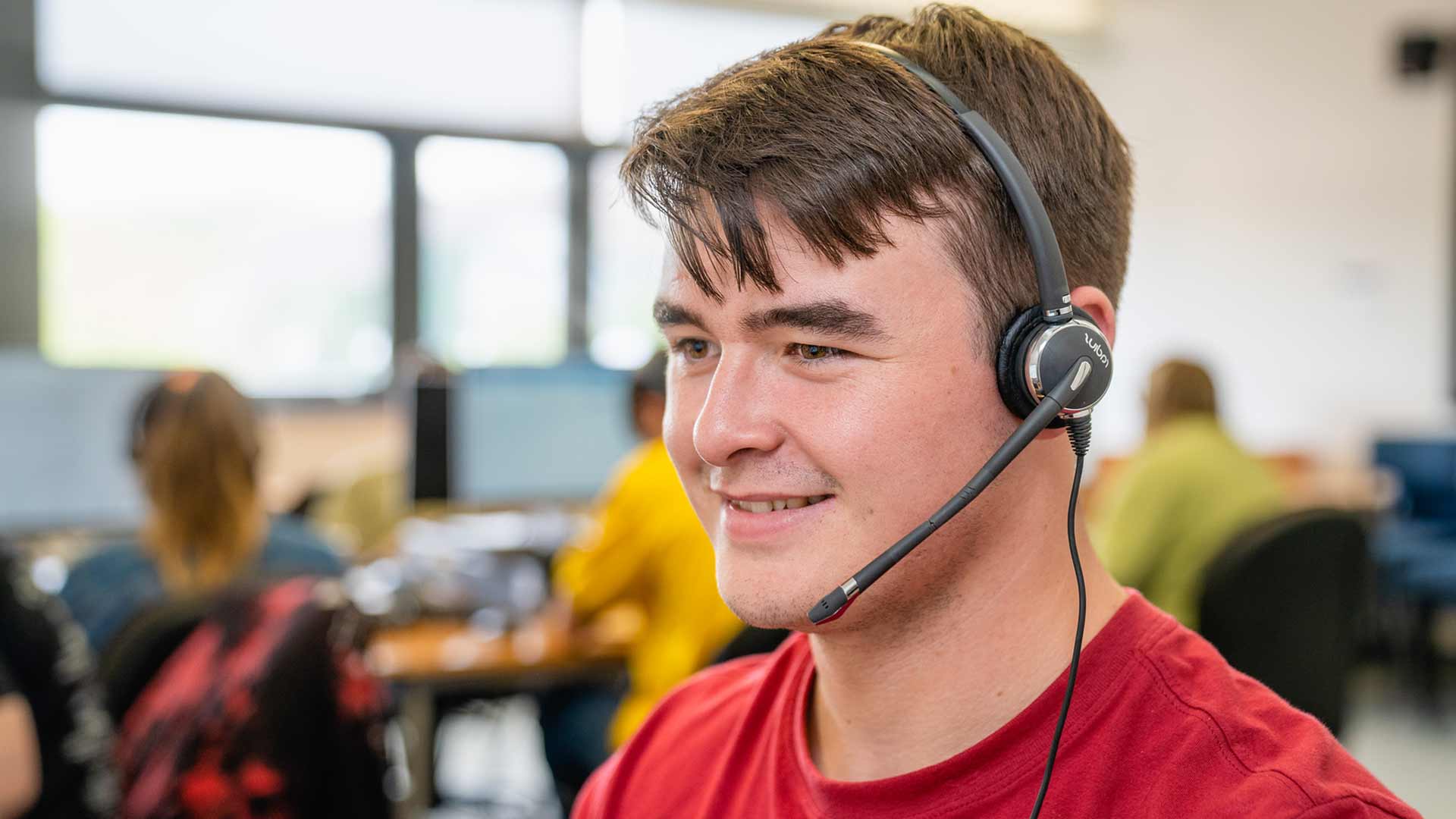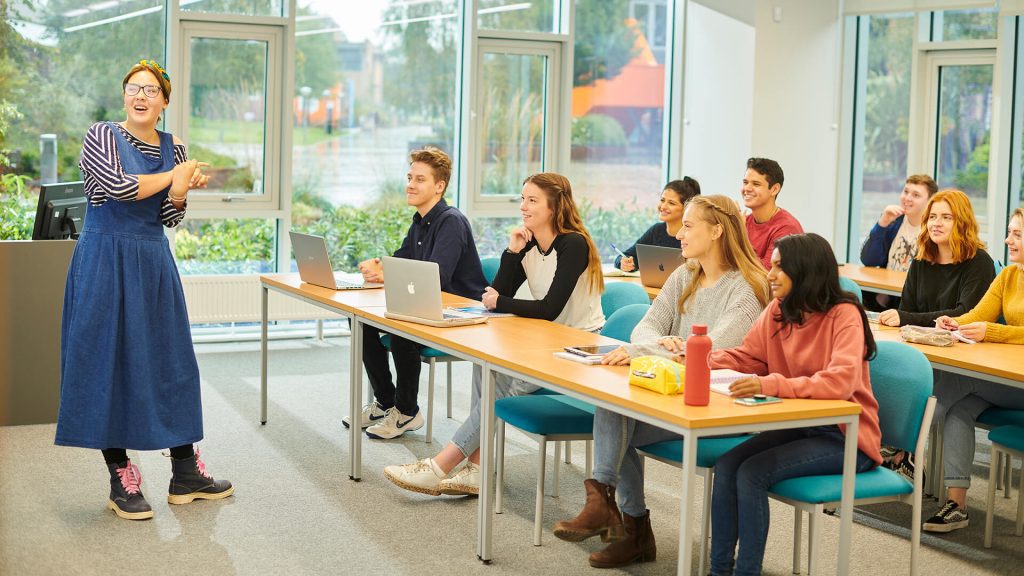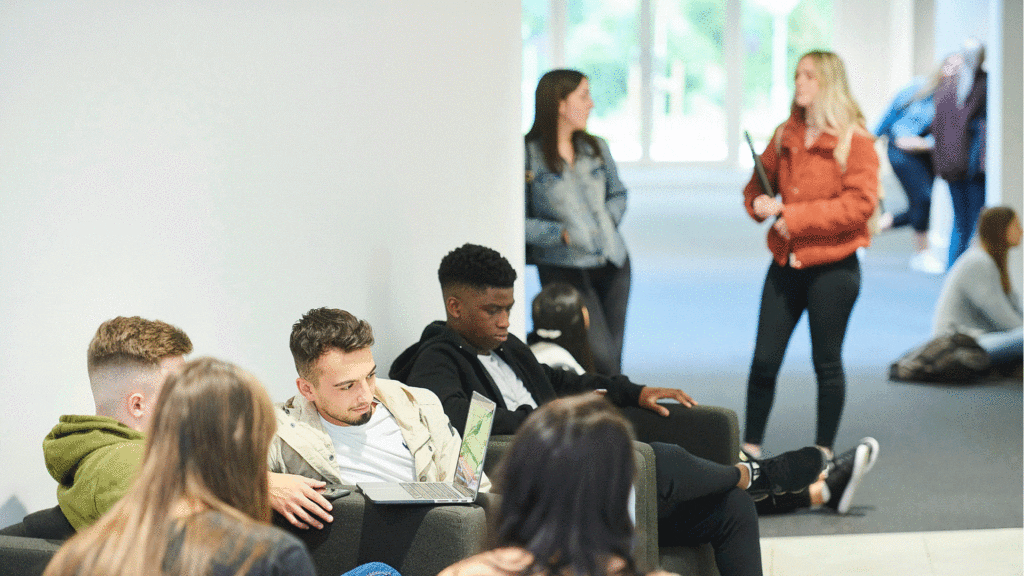Criminology and Psychology BA (Hons)
UCAS code: C5P3
Eager to learn about crime, power and harm, as well as social justice? Do you want to learn about the fundamental principles of psychology? Our criminology and psychology degree combines both subjects in a lively and engaging fashion.
Overview
| Course length: | 3 years full-time |
|---|---|
| Start dates: | September 2025 |
| Location: | Edge Hill University |
| Example offers: | BBC-BBB (A Level) or DMM (BTEC) |
| Subject(s): | Criminology |
| Faculty: | Arts and Sciences |
| Department: | History, Geography and Social Sciences |

What are the role and functions of the criminal justice system in contemporary societies? Ready to untangle the complexities of criminal behaviour? By combining the study of criminology and psychology, you’ll explore contrasting and complementary perspectives of these two subjects.
We’ve designed this course to allow you some freedom of choice when it comes to choosing your modules – so you’ll be able to explore topics that complement one another. For example, you might examine forensic psychology to understand what motivates people to carry out criminal behaviour in psychology, alongside exploration of how factors such as ethnicity, gender or class impact on the way in which individuals and communities experience the criminal justice system?
In your final year, an optional dissertation will give you the chance to independently research your specific areas of interest across both fields of study, with the support and guidance of your tutors.
Course features
-
International students can apply
-
Sandwich year option available
-
Studying abroad option available
What you'll study
In your first year of your criminology and psychology degree, we’ll introduce you to the key concepts and principles of criminology and psychology. You’ll study criminological theory, the criminal justice process, criminology in contemporary society, applied psychology and various elements of behavioural psychology. This will give you a solid grounding for your next two years of study.
In your second year, you’ll start to get a much deeper understanding of critical criminological theory. You’ll choose both criminology and psychology modules from a range of options. You might choose to focus on the relationship between crime, criminology and the media, or delve into theories, debates and practices linked to the concept of victimisation. On the psychology side of things, you could choose to explore developmental, social, cognitive or biological psychology.
Please note, if you want to take SPY3140 in Year 3, you must select SPY2150 as one of you options in Year 2.
Your final year gives you the chance to specialise in an area of particular interest. You might choose to study crimes perpetuated by states and powerful organisations or look into substance misuse from a psychological perspective. Perhaps you’ll be interested to explore the expanding field of forensic psychology. You’ll also have the opportunity to complete a dissertation that will combine insights from both disciplines.
Please note, SPY3140 can only be taken by students who have taken SPY2150 in Year 2.
How you'll study
The programme is delivered through a combination of lectures, tutorials, student-led seminars, small group work, practical workshops, directed study (preparing for classes) and independent study.
How you'll be assessed
Assessment methods include essays, formal examinations, statistical exercises, group research projects, report writing, oral presentations, designing a research proposal and completing a dissertation.
Who will be teaching you
You will be taught by a highly-committed team of research-active, expert tutors whose primary areas of specialism correspond directly with the themes of the modules available across this programme.
Where your course includes optional modules, these are to provide an element of choice within the course curriculum. The availability of optional modules may vary from year to year and will be subject to minimum student numbers being achieved. This means that the availability of specific optional modules cannot be guaranteed. Optional module selection may also be affected by timetabling requirements. Some restrictions on optional module choice or combinations of optional modules may apply.
Entry criteria
Typical offer 112-120 UCAS Tariff points, for which no specific subjects are required, plus at least 3 GCSE’s at Grade C or above (or equivalent) including Mathematics and English.
Please note, for the purposes of studying psychology, level 2 numeracy qualifications are not considered as equivalent to GCSE Grade C or Grade 4 in Mathematics.
Example offers
| Qualification | Requirement |
|---|---|
| A Level | BBC-BBB. |
| UCAS Tariff points | 112-120 points. |
| BTEC Extended Diploma (or combination of BTEC QCF qualifications) | Distinction, Merit, Merit (DMM). |
| T Level | Overall grade of Merit. |
| International Baccalaureate (IB) | We are happy to accept IB qualifications which achieve the required number of UCAS Tariff points. |
| Access to Higher Education Diploma | 45 credits at Level 3, for example 15 credits at Distinction and 30 credits at Merit or 24 credits at Distinction and 21 credits at Merit. The required total can be attained from various credit combinations. |
Please note, the above examples may differ from actual offers made. A combination of A Level and BTEC awards may also be accepted.
If you have a minimum of two A Levels (or equivalent), there is no maximum number of qualifications that we will accept UCAS points from. This includes additional qualifications such as Extended Project Qualification (EPQ), AS Levels that haven't been continued to A Level, and General Studies AS or A Level awards.
English language requirements
International students require IELTS 6.0, with a score no lower than 5.5 in each individual component, or an equivalent English language qualification.
If your current level of English is half a band, one band, or one-and-a-half bands lower, either overall or in one or two elements, you may want to consider our Pre-Sessional English course.
Fair Entry Criteria
Our new Fair Entry Criteria is a Contextual Admissions Policy that takes an applicant’s personal and educational background into account. This policy will allow eligible applicants to receive up to a two-grade reduction in their entry requirements for this course. Find out more and see if you qualify.
How to apply
Apply full-time
Read our guide to applying through UCAS to find out more about the application process.
International
Please see our international student pages for further information about how to apply as a prospective international student.
Should you accept an offer of a place to study with us and formally enrol as a student, you will be subject to the provisions of the regulations, rules, codes, conditions and policies which apply to our students. These are available at www.edgehill.ac.uk/studentterms.
Call our Clearing helpline on 0800 028 6677, Monday to Friday from 9am - 5pm or complete our Clearing Application Form and get the guidance you need. Want to know more about Clearing? view our Complete Guide to Clearing 2025.
Apply through Clearing
Facilities
The Department of History, Geography and Social Sciences is based in the Geosciences building. The contemporary facilities combine with a friendly and supportive learning environment to ensure that your studies are a rich and rewarding experience.
The Geosciences building features a large lecture theatre, small group teaching rooms, IT facilities and smaller tutorial spaces. There is also a large social area which encourages a more informal and interactive style of learning.
The £6m Law and Psychology building provides contemporary teaching and learning facilities for students in the Department of Psychology.
The three-storey building includes a 250-seat lecture theatre, seminar and tutorial rooms, and social learning areas which encourage a more informal and interactive style of learning. There are also specially designed experimental facilities for psychological research.
Psychology resources include state-of-the-art eye trackers, transcranial direct current stimulation (tDCS) methods, transcranial magnetic stimulation (TMS) and near-infrared spectroscopy (NIRS) for examining cognitive functioning and brain activity. Other specialist laboratories include a group testing laboratory, a ‘bar simulation laboratory’ (for alcohol research), health psychology suite, coaching clinic, audio-visual suites and dedicated IT facilities equipped with subject specific software installed to support experimental work.
Where you'll study
Finance
Tuition fees
UK Full-Time
£9,535
a year
International
£17,000
a year
EU/EEA and Swiss students who have settled or pre-settled status under the EU Settlement Scheme, as well as Irish nationals, may be eligible for the UK tuition fee rate.
Financial support
Subject to eligibility, UK students joining this course can apply for a Tuition Fee Loan from the Government to cover the full cost of tuition fees. UK students enrolling on the course may also be eligible to apply for additional maintenance loan funding to help with living costs.
Scholarships
We offer a range of scholarships, which celebrate the determination, commitment and achievement of our students. Many of our scholarships are awarded automatically. There are some however, where you will need to be involved in an application or nomination process. To find out more about our scholarships and check your eligibility, please visit our dedicated scholarships pages.
Money Matters
Please view the relevant Money Matters guide for comprehensive information about the financial support available to eligible UK students, together with details of how to apply for potential funding.
EU/EEA and Swiss students who have settled or pre-settled status under the EU Settlement Scheme may be eligible to apply for financial support. Irish nationals can ordinarily apply to Student Universal Support Ireland (SUSI). If you are an EU student who does not have settled or pre-settled status, or are an international student from a non-EU country, please see our international student finance pages.
Your future career
By the time you achieve your criminology and psychology degree, you’ll have a wide range of transferable skills that will equip you for a graduate role or further study.
Our graduates go on to have exciting careers in the police, HM prison service and the Home Office, as well as in these areas:
- criminal or youth justice agencies
- youth and community work
- law and research
- offender management
- outreach
Other students continue on to postgraduate study, or train to become teachers, social workers or chartered psychologists.
Course changes
Every effort has been made to ensure the accuracy of this information, however our courses are subject to ongoing review and development. Changing circumstances may necessitate alteration to, or the cancellation of, courses.
Changes may be necessary to comply with the requirements of professional bodies, revisions to subject benchmarks statements, to keep courses updated and contemporary, or as a result of student feedback. We reserve the right to make variations if we consider such action to be necessary or in the best interests of students.












